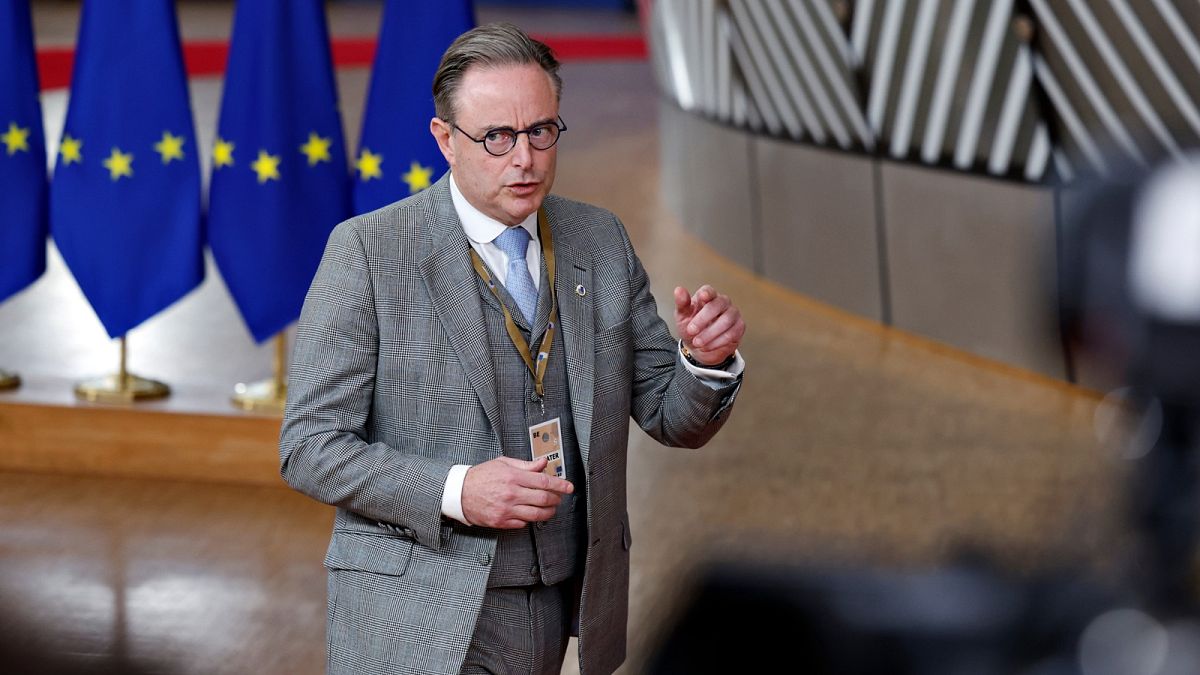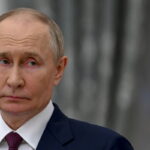Belgium stood its ground at the European Union summit, blocking the breakthrough of an audacious plan to use Russia’s central bank’s idle assets to extend a 140 billion euro loan to Ukraine.
The majority of the assets are held at Euroclear, the central securities depository in Brussels.
In return for his blessing, Belgian Prime Minister Bart de Weber upped the ante, calling for “full mutualization” of financial risks and the provision of airtight guarantees by all member states. He also called for Russian sovereign assets held in other European jurisdictions to be added to the common pot.
“Who gives that guarantee? Member states?” he said after the summit. “The European Commission cannot compel member states to sign guarantees.”
The Belgian prime minister’s main concern is Russian retaliation if it demands the return of assets and sanctions are lifted.
“If you receive funds from my country and it doesn’t work out, I cannot and certainly will not pay you 140 billion euros within a week,” he said.
“So I think all of the people who are really in favor of this decision and who really want to make this happen are ready and willing to guarantee that if it doesn’t work out or if things go downhill, I can sleep peacefully at night knowing that if it doesn’t work out or if it goes downhill, there’s actually going to be money (for sure) through our collective efforts,” he added.
“This question could not be answered with a tsunami of enthusiasm around the table.”
After intense discussions and negotiations that lasted all day, leaders failed to appease De Wever’s concerns And get the blessing he was looking for. Hungary, on the other hand, predictably rejected the idea outright.
The resistance was at odds with a majority in the room who saw Russian assets as the only way to avoid paying out-of-pocket aid costs.
In the end, heads of state and government settled on fairly weak language directing the commission to present “as soon as possible” a list of “options” to resolve Kyiv’s financial and military needs in 2026 and 2027. An earlier version of the conclusions referred to drafting “concrete recommendations”.
Ursula von der Leyen accepted this ambiguous wording as an obligation.
“This is certainly not a trivial issue, it is a very complex issue,” he said in response to a question from Euronews.
“There are points that need to be clarified and dug deeper,” she added. “In other words, we have agreed on what reparations financing is and we need to work on how and how to make that possible (and) what are the best options moving forward.”
Can it be done?
Under the tentative plan, Euroclear would transfer cash balances generated by Russian assets to the European Commission. The European Commission will then use the funds to issue 140 billion euros in loans to Ukraine, which will be disbursed gradually with conditions.
Ukraine will only be required to repay the loan if Russia agrees to pay damages. Hence the name “compensation loan.” The European Commission then repays Euroclear, which in turn repays Russia, completing the cycle.
This plan is still in its early stages and needs to be turned into a full-fledged proposal.
European Council President Antonio Costa said on Thursday that no one had “vetoed anything” and, rather, “all technical issues” could be resolved.
According to Costa and von der Leyen, European Central Bank President Christine Lagarde, who attended the summit, said the plan was achievable. Lagarde has previously criticized plans akin to confiscation of sovereign assets.
Mr Costa expressed hope that a “final decision” would be taken at the next summit in December, a view echoed by France’s Emmanuel Macron and Germany’s Friedrich Merz.
“If the assets were in Germany, I would have the same argument (with Belgium). Today we have taken a step that should not be taken for granted,” Merz said.
“We will do everything we can to move forward. We are confident that all member states will sign, but we need to further discuss responsibilities.”
In his remarks, Mr. de Wever painted a more nuanced picture of the exchange.
“My impression is that many heads of government are a little torn between their willingness to support Ukraine and (the fact) that they have to acknowledge that these questions are real, the risks are real, and they need guarantees,” he said.
Mr de Wever insisted that a condition of the loan was that other G7 allies be brought on board. The UK and Canada have already expressed interest in participating. Japan, which also holds sovereign Russian assets, has kept a low profile.
“It’s better not to do it alone,” de Wever said.
Thursday’s lukewarm results increase pressure on European countries to build reliable and predictable sources of funding for Kiev.
Earlier on Thursday, Ukrainian President Volodymyr Zelenskiy made a plea for the loan to be approved by next year. The country is running out of money after President Donald Trump’s administration cut off aid, and the hole is deepening.
“Funds will be needed in 2026, but it would be better to have them available at the beginning of the year,” he said. “I don’t know if it’s possible. It’s not all up to us.”
“We understand who can be blocked and we can work with these people,” he said, apparently referring to Belgium.








